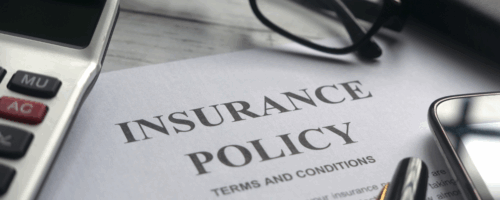Disclaimer: This blog post is for informational purposes only and does not constitute legal advice. Please consult an attorney for guidance on specific laws regarding Remote Online Notarization (RON), digital signatures, and related legal matters. As laws concerning RON and notarization are subject to frequent changes, it is advisable to verify current regulations with your local government.
Handling money often requires a lot of trust. When big financial decisions are on the table, you want peace of mind. This is where notarization often steps in, helping to add a formal layer of verification.
Proper notarization for financial transactions can help protect everyone involved from potential problems down the road. You’ve likely seen that notary stamp on important papers, but what does it really mean for your financial dealings? Understanding notarization for financial transactions is quite important in today’s world, it can impact everything from opening a savings account to closing on real estate.
What Exactly is Notarization?
So, what happens during notarization? It’an official process where a licensed individual, called a Notary Public, witnesses the signing of documents by also signing their name and providing their official seal or stamp. The Notary also verifies the identity of the person signing using acceptable state-issued identification.
They act as an impartial third party, commissioned by a state or local government. The main job of a notary is to help ensure that the signer understands the seriousness of the documents they are signing, and also to aid in deterring fraud in sensitive transactions. They help to make sure the people signing a document, the document signers, are who they claim to be.
They also check that signers are acting of their own free will; this is a key notarial act. This formal witnessing can give documents more legal weight. It helps show that the signing process was handled properly, which often prevents future arguments about the document’s validity, particularly vital within financial services.
Why is Notarization Important for Financial Transactions?
Money matters can be serious business, affecting the management of finances significantly. Financial agreements often involve large sums or significant responsibilities impacting personal or small business operations. Because of this, security and certainty are typically vital for all financial transactions.
Notarization adds an important verification step. The notary public helps confirm identities, reducing the risk of someone forging a signature. This can be extremely important when dealing with things like loans, property transfers, or setting up complex wealth management structures.
Having a notary present also helps confirm that the signer wasn’t forced or tricked into signing; the notary checks for awareness and willingness. This simple check can head off major disputes later on. The formal record created by the notarization process, including the notary’s journal entry and the notarial certificate on the document, can provide solid evidence if a document’s signing is ever questioned legally.
Common Financial Documents Needing Notarization
Many types of financial paperwork frequently benefit from or require notarization. The exact requirements can depend on the transaction type, state laws, and the policies of the involved financial institutions. Here are some common examples where notarizing document signing is standard practice:
Real Estate Transactions
Buying, selling, or refinancing property almost always involves notarized documents. Deeds, which transfer ownership, must be formally witnessed and acknowledged before a notary to be recorded in most cases. Mortgages, securing loans with property, also often need notarization to be legally binding, impacting factors like mortgage rates.
Documents handled by a title company during closing, like affidavits and certain settlement statements, typically require a notary seal, too. The integrity of these real estate transactions relies heavily on proper notarization.
Loan Agreements
Significant loan agreements often get notarized. This applies to large personal loans between individuals or family members. Business loans from financial institutions, including those for a small business, commonly need notarization too, as might agreements related to a student loan modification.
This process helps guarantee the identity and commitment of the borrower. Some lenders may require notarization for specific credit repair documents or debt settlement agreements.
Power of Attorney for Finances
A Power of Attorney (POA) document lets someone else make financial decisions for you, potentially involving checking accounts, savings accounts, or investment management actions. Because this grants substantial authority over your finances, it usually must be notarized. This helps confirm you willingly granted these powers while fully understanding the implications.
Many financial institutions, including a private bank or trust company, may not accept a financial POA without proper notarization. This step protects both the principal (you) and the institution relying on the document.
Trust Documents and Wills
Setting up a trust involves transferring assets and complex wealth management planning. These documents often need notarization to be considered valid and legally enforceable by a trust company or court. While requirements for notarizing wills can vary greatly by state (some require witnesses instead), notarizing a self-proving affidavit related to the will signing can simplify the probate process later.
Always check your specific state’s laws regarding estate planning documents; consulting with legal counsel is recommended, as a notary cannot provide legal advice.
Affidavits Related to Finances
An affidavit is a sworn written statement used in various financial contexts. Financial affidavits might state facts about income for loan applications, assets for divorce proceedings, or debts related to credit repair efforts.
Certain Banking Forms
Some specific online banking or traditional banking actions might require witnessing from a notary. Examples could include forms to access a safe deposit box after the owner’s death or forms requesting specific card services or changes. Forms changing beneficiaries on certain account types, like life insurance policies or retirement accounts managed through a bank, might also need it.
Requirements often depend on the specific bank’s policies for checking account management, savings account access, business checking, business savings, cash management, and overdraft protection adjustments. Checking the bank’s privacy policy or contacting customer service can clarify requirements.
Here’s a quick overview of common documents:
| Document Type | Typical Notarization Need | Common Context |
|---|---|---|
| Real Estate Deeds & Mortgages | Almost Always Required | Property Sale/Purchase, Refinancing |
| Large Loan Agreements (personal loans, business) | Often Required | Securing significant funds |
| Financial Power of Attorney | Usually Required | Granting financial authority |
| Trust Agreements | Often Required | Estate planning, asset protection |
| Financial Affidavits | Usually Required (Jurat) | Sworn statements of financial facts |
| Specific Banking Forms (e.g., safe deposit access, beneficiary changes) | Sometimes Required (Bank Policy Dependent) | Account management, life insurance proceeds |
*Note that the table above provides general information; you should always check with your local law or an attorney to see if your document needs to be notarized.
The Traditional Notarization Process: Step-by-Step
Getting a document notarized the traditional way involves meeting a notary public in person. Here’s how it usually goes:
- First, you need to find a qualified Notary Public. Banks, credit unions, libraries, shipping centers like UPS or FedEx stores, and some local government offices often have notaries available. You can also search online directories or use a dedicated notary service.
- Next, all document signers must physically appear before the notary at the agreed time and place. You cannot send someone else in your place or sign via video call in this method. The notary needs to interact with you directly.
- You will need to present a valid form of identification. This is typically a government-issued photo ID, like a driver’s license, state ID card, or passport (state-issued identification). The ID typically must be current (not expired) and contain a photo, signature, and physical description.
- The notary examines your ID carefully to verify your identity. They will also assess your alertness and willingness to sign, ensuring you seem to understand the document and are signing voluntarily without coercion.
- Once the notary is satisfied with your identity and willingness, you will sign the document in their presence. It’s very important not to sign the document beforehand. The notary must witness your signature for an acknowledgment or administer an oath/affirmation for a jurat before you sign.
- Finally, the notary completes the notarial certificate section of the document. This part details the notarial acts performed (e.g., identity verified, signature witnessed, oath administered). The notary then signs the certificate and affixes their official seal or stamp as required by their state. They also meticulously record the act in their official journal, creating a lasting record.
A Modern Approach: Remote Online Notarization (RON) for Financial Transactions
Technology has brought changes to many processes, including notarization itself. Remote Online Notarization, or RON, can allow you to get documents notarized digitally using the internet. You connect with a specially commissioned remote online notary using secure audio-visual technology.
This online notarization approach offers significant convenience, enhancing the user experience. You may not need to travel to meet a notary public in person; you can often schedule appointment times that fit your needs. This is particularly helpful if document signers are in different cities or states, or if someone has mobility issues making travel difficult.
RON can dramatically speed up financial closings and other time-sensitive financial transactions. This aligns well with the push towards digital banking and providing more services online.
*Please note laws vary by state and you should always verify you can use RON for your financial document before proceeding.
How RON Works for Financial Documents
The RON notarization process maintains the core principles of traditional notarization but uses technology for execution.
First, your identity is verified digitally through robust methods. This often involves answering knowledge-based authentication (KBA) questions derived from your public records history.
It also includes credential analysis, where sophisticated software analyzes your uploaded state-issued identification (like a driver’s license) for authenticity. You then connect with the commissioned online notary via a secure, recorded video call. The notary verifies your identity again visually, confirms your willingness to sign, and observes as you apply your electronic signature to the document.
The online notary then applies their electronic seal and digital certificate, rendering the document tamper-evident. The entire audio-visual session is securely recorded and stored, creating a strong audit trail superior in some ways to a traditional paper journal entry. Various online notarization options exist through different platform providers.
Security Aspects of RON
Some might question the security of online notarization, especially for high-value financial transactions. However, reputable RON platforms often employ multiple layers of security. Advanced identity verification methods like KBA and credential analysis are often considered more rigorous than a simple visual ID check in person.
The use of public key infrastructure (PKI) digital certificates and tamper-evident technology typically makes the notarized electronic document highly secure. Any subsequent attempt to alter the document after the online notary applies their digital seal will often invalidate the certificate, making the tampering evident. These security measures are designed to help meet high standards, including those set by organizations like the Mortgage Industry Standards Maintenance Organization (MISMO), which supports RON for real estate transactions.
Platforms offering these services online typically prioritize online privacy and usually adhere to strict privacy practices outlined in their privacy policy or privacy notice. They may analyze site usage data to improve security and user experience, but must protect personal information according to regulations.
Legal Acceptance of RON
RON is becoming widely accepted across the United States, offering flexible notarization options. A majority of states have passed laws specifically authorizing its use by commissioned online notaries located within their borders. However, the rules and regulations can differ significantly from state to state.
It’s important to check if RON is permitted for your specific transaction type and if the receiving party (like a bank or local government agency) accepts electronically notarized documents. Some documents or jurisdictions might still require traditional in-person notarization. Resources like your state Secretary of State’s website (often considered public officials overseeing notaries) or the National Association of Secretaries of State (NASS) usually provide current information on RON laws.
Financial institutions also establish their own internal policies regarding the acceptance of RON for things like mortgage rates documentation or opening a checking account or savings account. Always confirm acceptance beforehand, especially when dealing with entities like a title company or trust company.
Notaries and Financial Institutions: Working Together
Financial institutions like banks, credit unions, mortgage lenders, investment management firms, and title companies often heavily rely on notary services. Notarization can be a fundamental component of their risk management strategy for numerous financial transactions. It helps protect both the institution and its customers from identity theft and fraud.
These institutions require reliable, accurate, and often fast notary fulfillment. They frequently establish relationships with trusted individual notaries, employ in-house notaries, or partner with comprehensive notary service providers offering access to traditional, mobile notary, and online notary options. For high-volume work like mortgage closings or processing applications for credit cards or personal loans, efficiency and error reduction are critical.
Modern solutions like RON platforms can be increasingly appealing to financial institutions, including those offering private bank services. They streamline the closing process for real estate, reduce paperwork errors through guided signing, and offer enhanced customer service and convenience. Integrating secure online notarization can fit logically with the broader trend towards digital banking, better cash management tools, and providing services online.
Partnering with a dependable notary platform provider, like NotaryCam, can potentially include on-demand notaries available through networks. Whether it’s for a checking account, savings account, business checking, business savings, life insurance payout, or complex wealth management documents, reliable notarization can play a vital role.
Conclusion
Trust is often the foundation of finance and successful managing finances. Notarization for financial transactions can serve as a critical safeguard in countless monetary dealings, from simple checking accounts transactions to major real estate investments. It helps to confirm identities through verification of state-issued identification and helps demonstrate that signings are performed knowingly and willingly.
This formal step, executed by a commissioned notary public or online notary, helps provide security and adds significant legal weight to important agreements. Whether completed through a traditional in-person meeting or using secure remote online notarization methods, appropriate notarization can play an essential role. It helps prevent fraud, reduces the likelihood of disputes, and upholds the integrity of our financial services system.
Understanding the function and importance of notarization for financial transactions is valuable for any small business or individual involved in significant financial activities. It’s a key element in protecting your interests and ensuring the validity of crucial documents like personal loans, credit cards agreements, and investment management forms.
Frequently Asked Questions About Notarization for Financial Transactions
Why does notarization matter in financial transactions?
Notarization helps protect against fraud by verifying the identity of document signers and checking they are signing willingly. In high-stakes financial transactions—like loans, property sales, or powers of attorney—this layer of verification may help prevent disputes and protect all parties involved.
Can financial documents be notarized online?
Yes, in many states, financial documents can be notarized using Remote Online Notarization (RON). This method allows a commissioned online notary to verify your identity and witness your signature over a secure video call. It’s often convenient for real estate closings, POAs, and banking forms—especially when parties are in different locations.
What kinds of financial documents usually require notarization?
Common financial documents that may require notarization include real estate deeds, loan agreements, financial powers of attorney, trust documents, affidavits, and certain bank forms. Requirements vary by state and institution, so it’s best to confirm whether notarization is necessary before signing.
Is online notarization (RON) legally accepted everywhere?
RON is legally accepted in many U.S. states, but not all. Even where RON is legal, the receiving financial institution (like a bank or title company) must also agree to accept an electronically notarized document. Always check both your local laws and your institution’s policy before proceeding.
Is RON as secure as traditional notarization?
RON platforms often use multi-layered identity verification methods that may exceed traditional in-person checks, including credential analysis and knowledge-based authentication (KBA). Sessions are recorded and stored, and the notarized documents are made tamper-evident with digital certificates—adding both security and auditability.








 Your Privacy Choices
Your Privacy Choices


